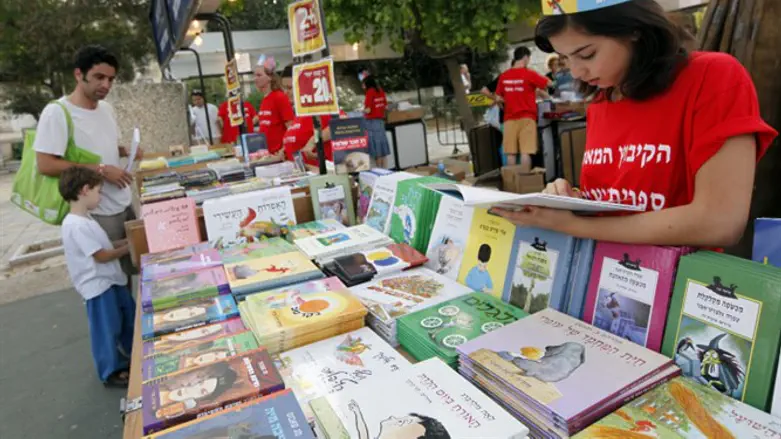
Israel's Central Bureau of Statistics in honor of Hebrew Book Week published on Monday data on Israelis' reading habits.
Hebrew Book Week will begin on Wednesday, June 7.
Twenty-nine percent of the survey's respondents aged 16-65 reported that they don't read books at all. However, 21% of the respondents said they read books every day, and another fifth of the population (19%) said they read books at least once a week, but not every day.
The total number of book-reading respondents - 40.1% - is greater than the OECD's average of 37.2%, ranking Israel 14th out of 28 countries.
Women read more books than men, with 47% of women reading a book, fiction or non-fiction, at least once a week, compared to only 34% of men who read the same amount.
Nearly half of the Arab population (49%) does not read books at all, whereas only 24% of the Jewish population said the same.
The number of Arabs over age 55 who read is significantly lower than the number of Arabs aged 16-24 who read: 63% of Arabs over age 55 do not read at all, whereas 40% of Arabs aged 16-24 do not read at all.
Two-thirds (67%) of respondents who said they had over 500 books at home when they were 16 years old, read books at least once a week. Meanwhile, 19% of respondents who had 10 or fewer books at home said they read at least once a week.
Seventy-two percent of haredi respondents said they read at least once a week, compared to 40% of irreligious or secular respondents who said the same.
Higher income Israelis are more likely to read: Of those who earn 4,000-5,999 NIS per month, the number of respondents who do not read at all is 35%. Meanwhile, 15% of those who earn more than 17,000 NIS per month do not read.
Twelve percent of those between the ages of 16-65 who are employed either full- or part-time read books - fiction or research - at least once a week for the purpose of work.